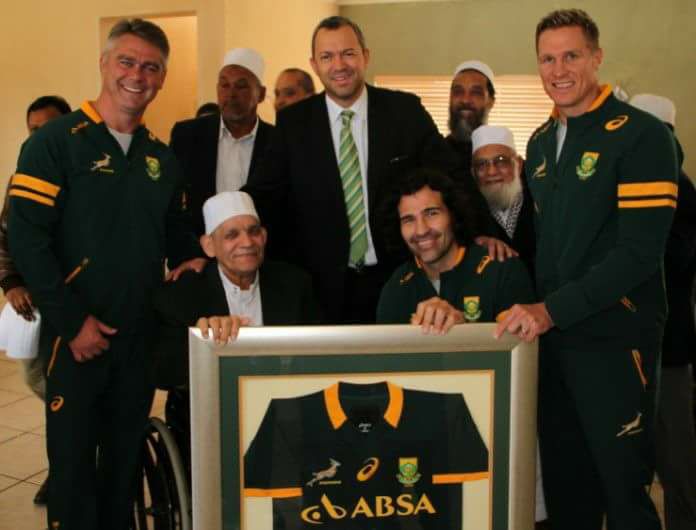Salie Fredericks epitomized a generation of fighters and as captain of both Saru and Western Province rugby, “he led from the front”. These are the words of the ANC in the Western Cape, as it paid tribute to the enormous contribution made by the legend to South African rugby.
The former SARU and Sacos top rugby player, known fondly as ‘Lippe’ passed on Thursday at his home in Panorama. He fought a longstanding battle against diabetes and had both his legs amputated a while ago as a result of the illness.
Fredericks played more than 200 provincial matches for Western Province in competitions of the former non-racial South African Rugby Union. He also received nine SARU caps during this period.
Under his leadership, Western Province won the Rhodes Cup for three years in succession, from 1971 to 1973. Fredericks also showed his great talent as an exceptional lock in nine “inter-racial” tests against the African Springboks and the SA Rugby Federation’s Proteas between 1963 and 1974, scoring three tries in the process.
ANC Western Cape secretary Faiez Jacobs paid the rugby fraternity has lost a hugely respected leader in the non-racial rugby community.
“Salie Fredericks really made a massive contribution for our rugby on the playing field, his many administrative roles and community work,” said Jacobs.
“He comes from a proud rugby tradition that is more than 100 years old and was a giant figure in an era when black people were denied the opportunity to represent South Africa internationally. Like so many other talented and unsung sporting heroes of his time, Salie chose to stay in South Africa and keep the flame of rugby burning while fighting for non-racialism in sport.
“We salute him for his sacrifice and his immense contribution to our rugby, and would like to express our most heartfelt condolences to his family and his large circle of friends, team mates, all rugby players & comrades,” Jacobs added.
Former ANC Western Cape Chairperson, Ambassador Ebrahim Rasool, remembered him fondly.
“In my last discussion with Salie Fredericks, we spoke about his role, together with Dullah Omar, in preparing the non-racial rugby fraternity for the transition in SA. Crucial for this was the process for rugby unity and the formation of the National Sports Congress,” said Rasool.
“Salie saw himself as one of the underground operatives of the liberation movement in the period just before and during the transition. He was identified for this crucial political role because of his undoubted stature in non-racial rugby. Excellent as a forward, fearless in contact and astute as a leader, Salie Fredericks could rival his white contemporaries and even surpass them! “
“Yet he made his choice to remain true to his principles and to thrill the non-racial community – from the Green Point track to Dan Qeqe Stadium, from Florida Park to City Park, from Adcock to Kimberly – with his skills and talent. He rejected overtures to play ‘Federasie’ or ‘Proteas’ against the Lions and All Blacks in the 1970’s. Had SA been a non-racial society free of apartheid, no one who saw ‘Lippe’ play has any doubt that on pure merit he would have walked into any national team and been able to thrill the world with his exploits.”
Rasool said this was the “true tragedy of apartheid” as it denied people like Fredericks to realize their full potential. SA Rugby President Mark Alexander said Fredericks made a “massive mark on our rugby landscape” through his decades of service to the sport.
“He comes from a proud rugby tradition that is more than 100 years old and was a giant figure in an era when black people were denied the opportunity to represent South Africa internationally. Like so many other talented and unsung sporting heroes of his time, Salie chose to stay in South Africa and keep the flame of rugby burning while fighting for non-racialism in sport,” he said.
“We salute him for his sacrifice and his immense contribution to our rugby, and would like to express our most heartfelt condolences to his family and his large circle of friends,” added Alexander.
Many Facebook users took the time to pay tribute to the rugby icon, with many posting photos and memories of him. Community activist Kashif Wicomb said Fredericks epitomised the principles of “no normal sport in an abnormal society”.
“I had the privilege of having this man as a mentor and coach at one stage. Boeta Salie was a true Legend and very instrumental for WP and Springbok Rugby,” added Zaahid Appolles.
Salie Fredericks was laid to rest at the Muslim cemetery in Browning Road Observatory on Friday. VOC






 WhatsApp us
WhatsApp us 

